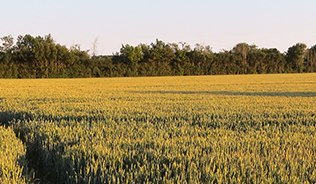The environment sector was ranked the second least ethnically diverse in the UK in 2017, with just 3.1% of environmental professionals identifying as any ethnicity other than White British, versus 19.9% in all other occupations. We believe there is a clear need for continued research, education and reform to identify and address the key barriers which result in low ethnic diversity across the sector.
We are, therefore, delighted to publish the findings of a recent IES research project – joint-funded by Bureau Veritas, Delta-Simons and the Environment Agency – to examine some of the challenges and opportunities related to ethnic diversity in the environment sector. Drawing on the perspectives of professionals from ethnic minorities, those working in equality, diversity and inclusion (EDI) job roles and heads of organisations, the research aims to understand the barriers to a representative environmental workforce and provides recommendations for individuals, employers and, more broadly, the sector to promote and enhance inclusion of ethnic minorities.
We believe that modern professional bodies should take an active role in ensuring that their sectors are diverse and inclusive, and we hope that this work helps to further our collective progress towards a more representative workforce.
Chi Onwurah MP, Chair of the All-Party Parliamentary Group (APPG) on Diversity and Inclusion in STEM, said of the research
“Professional bodies should be leading the way in widening participation within their sectors, so I very much welcome this report by the IES.
I was pleased to be involved in the IES’ work in this area, particularly as it intends to build a more inclusive environment sector through understanding the perceptions and lived experiences of professionals from ethnic minorities; such insights are essential in achieving this aim.”
The report, titled 'A challenging environment: Experiences of ethnic minority environmental professionals', can be viewed in full on our website, here.
Launch event
We will be hosting a webinar on Wednesday 2 March at 12.30pm BST to discuss the report's findings in more detail. The webinar will feature several speakers involved in the research, and there will also be an opportunity for a Q&A with the report's author. The event is free to attend and open to members and non-members.
If you would like to find out more about the research, register to book your place today.



